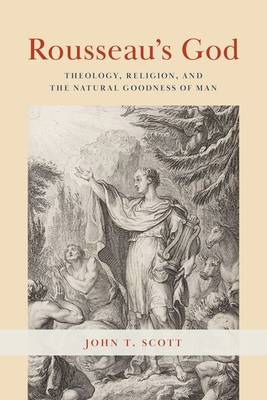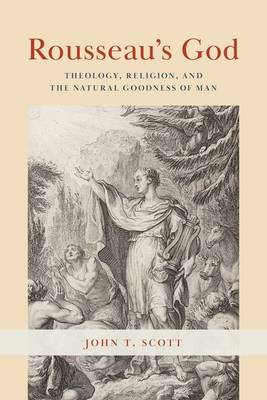
- Afhalen na 1 uur in een winkel met voorraad
- Gratis thuislevering in België vanaf € 30
- Ruim aanbod met 7 miljoen producten
- Afhalen na 1 uur in een winkel met voorraad
- Gratis thuislevering in België vanaf € 30
- Ruim aanbod met 7 miljoen producten
Zoeken
€ 167,95
+ 335 punten
Uitvoering
Omschrijving
A landmark study of Rousseau's theological and religious thought. John T. Scott offers a comprehensive interpretation of Rousseau's theological and religious thought, both in its own right and in relation to Rousseau's broader oeuvre. In chapters focused on different key writings, Scott reveals recurrent themes in Rousseau's views on the subject and traces their evolution over time. He shows that two concepts--truth and utility--are integral to Rousseau's writings on religion. Doing so helps to explain some of Rousseau's disagreements with his contemporaries: their different views on religion and theology stem from different understandings of human nature and the proper role of science in human life. Rousseau emphasizes not just what is true, but also what is useful--psychologically, morally, and politically--for human beings. Comprehensive and nuanced, Rousseau's God is vital to understanding key categories of Rousseau's thought.
Specificaties
Betrokkenen
- Auteur(s):
- Uitgeverij:
Inhoud
- Aantal bladzijden:
- 272
- Taal:
- Engels
Eigenschappen
- Productcode (EAN):
- 9780226825489
- Verschijningsdatum:
- 18/04/2023
- Uitvoering:
- Hardcover
- Formaat:
- Genaaid
- Afmetingen:
- 152 mm x 229 mm
- Gewicht:
- 571 g

Alleen bij Standaard Boekhandel
+ 335 punten op je klantenkaart van Standaard Boekhandel
Beoordelingen
We publiceren alleen reviews die voldoen aan de voorwaarden voor reviews. Bekijk onze voorwaarden voor reviews.











